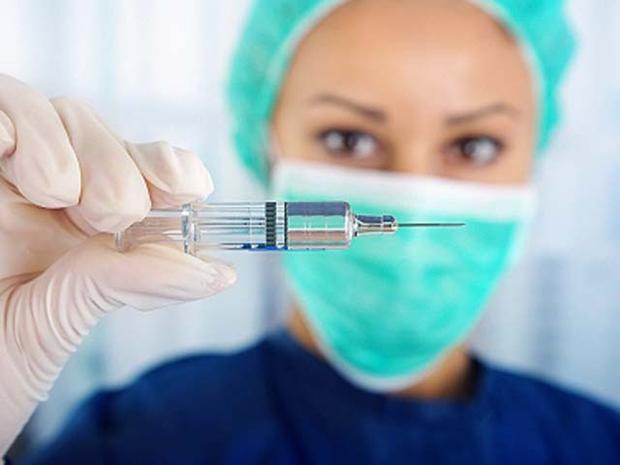HPV vaccine for boys may be hard sell: Why?
(CBS/AP) A vaccine against human papillomavirus (HPV) - a leading cause of cervical cancer - hasn't been popular for girls. For boys, it may be an even harder sell.
PICTURES - HPV vaccine: 20 states that shun the shot
A federal advisory panel on Tuesday recommended that boys, too, get the vaccine - in part to stop girls from getting the sexually transmitted virus.
Since 2006, public health officials have tried to get parents to have their daughters vaccinated against HPV. They've had limited success. Some parents question the vaccine's safety. Others don't want to think about their daughters having sex, or feel the vaccine promotes promiscuous behavior.
Tuesday's vote by the Advisory Committee on Immunization Practices was the first to recommend routine vaccination for boys since the vaccine was first approved for them two years ago.
Experts say one benefit of routinely vaccinating boys could be blocking the spread of HPV through sex - making up somewhat for the disappointing vaccination rate in girls. But the recommendation is being framed as an important new measure against cancer in males.
"Today is another milestone in the nation's battle against cancer," said CDC administrator Dr. Anne Schuchat, who oversees the agency's immunization programs.
Federal health officials typically adopt the panel's recommendations and ask doctors and patients to follow them.
The vaccine has been recommended for girls since 2006. But only 49 percent of adolescent girls have gotten at least one of the three HPV shots. By last year, only a third had gotten all three doses - a situation Schuchat deemed "pretty terrible."
Schuchat attributed the low vaccination rate in girls to confusion or misunderstanding by parents that they can wait until their daughter becomes sexually active. It works best if the shots are given before sexual activity begins.
Conservatives say the vaccine promotes promiscuous behavior. The issue has come up in the Republican presidential campaign. Texas Gov. Rick Perry came under fire for a 2007 executive order requiring adolescent girls to get the vaccine (with an opt-out clause). When conservative lawmakers rebelled, he backed down.
An estimated 75 to 80 percent of men and women get infected with HPV at some point, but few develop symptoms or get sick, according to the CDC. Some infections lead to genital warts, cervical cancer and other cancers, including of the head and neck.
The HPV vaccine is approved for use in males and females 9 to 26 years of age. It is usually given to 11- and 12-year olds when they get other vaccines. The committee also recommended that males 13 to 21 years get vaccinated.
Tuesday's vote follows studies showing the vaccine prevents anal cancer in males - a malignancy that affects mostly gay men - and may work against throat cancer.
While anal cancer is increasingly common, it's still rare. Only about 7,000 U.S. cases in men each year are tied to the strains targeted by the HPV vaccine.
Preventing a cancer that's associated with gay men may not be much of a selling point, said Dr. Ranit Mishori, a family practice doctor in Washington, D.C. and an assistant professor at Georgetown University School of Medicine.
Some parents may say "`Why are you vaccinating my son against anal cancer? He's not gay! He's not ever going to be gay!' I can see that will come up," said Mishori, who supports the panel's recommendation.
Schuchat said the CDC is ready for that argument: "There's no data suggesting that offering a vaccine against HPV will change people's subsequent sexual behavior," she said.
There are two HPV vaccines, but Tuesday's vote applies only to Merck's Gardasil, which costs $130 a dose. The other vaccine wasn't tested for males.
